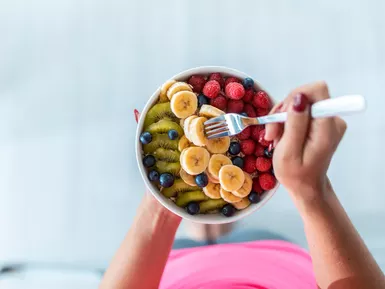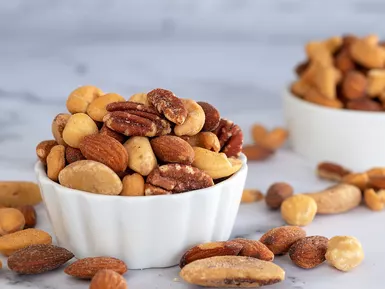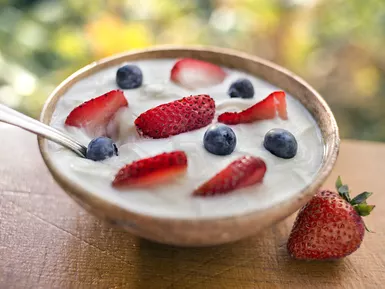
Debunking Fruit Myths for Successful Weight Loss
When it comes to losing weight, there are many myths and misconceptions floating around. One area that often causes confusion is the role of fruit in a weight loss diet. In this blog post, we will debunk five common myths about fruit that could be preventing you from achieving your weight loss goals.
Myth 1: Fruit is High in Sugar and Bad for Weight Loss
Reality: While it's true that fruit contains natural sugars, it also provides essential nutrients, fiber, and antioxidants. The fiber in fruit helps to slow down the digestion of sugar, preventing spikes in blood sugar levels. Additionally, the nutrients and antioxidants in fruit are important for overall health and can support weight loss efforts.
According to the Academy of Nutrition and Dietetics, including fruit in your diet can help you feel full and satisfied, which can prevent overeating and aid in weight loss. The key is to choose a variety of fruits and consume them in moderation as part of a balanced diet.
Myth 2: Dried Fruit is Just as Healthy as Fresh Fruit
Reality: While dried fruit can be a convenient and nutritious snack, it is also more concentrated in calories and sugar than fresh fruit. When fruit is dried, the water content is removed, which makes the fruit smaller and more calorie-dense. Additionally, some dried fruits may be coated with added sugars or sulfites, which can increase the calorie and sugar content.
The Obesity Society recommends choosing fresh fruit over dried fruit whenever possible. If you do choose to eat dried fruit, be sure to read the label carefully and choose unsweetened varieties. Additionally, limit your portion size to avoid consuming too many calories and sugar.
Myth 3: Fruit Juice is a Healthy Alternative to Soda
Reality: While fruit juice may seem like a healthy alternative to soda, it is often high in sugar and calories. Many fruit juices are made from concentrate, which means that the water has been removed and the sugar has been concentrated. Additionally, fruit juice does not contain the fiber that is found in whole fruit, which can help to slow down the digestion of sugar and prevent spikes in blood sugar levels.
The American Heart Association recommends limiting your intake of fruit juice to no more than 4 ounces per day. Instead, choose whole fruit, which provides more nutrients and fiber and is more filling than fruit juice.
Myth 4: Eating Fruit at Night Will Cause Weight Gain
Reality: There is no scientific evidence to support the claim that eating fruit at night will cause weight gain. Weight gain is caused by consuming more calories than you burn, regardless of when you eat them. However, if you are trying to lose weight, it is important to be mindful of your portion sizes and to choose fruits that are lower in calories and sugar.
The National Institutes of Health (NIH) recommends eating a variety of fruits and vegetables throughout the day, including at night. However, if you are prone to acid reflux or indigestion, you may want to avoid eating fruit at night, as it can exacerbate these conditions.
Myth 5: All Fruits are Created Equal
Reality: While all fruits are nutritious, some fruits are higher in calories and sugar than others. For example, bananas, mangoes, and grapes are higher in calories and sugar than apples, berries, and citrus fruits. If you are trying to lose weight, it is important to choose fruits that are lower in calories and sugar and to consume them in moderation.
The Centers for Disease Control and Prevention (CDC) recommends choosing a variety of fruits and vegetables in different colors and types to ensure that you are getting a wide range of nutrients. Additionally, the CDC recommends choosing fruits that are fresh, frozen, or canned in water or 100% fruit juice, rather than those that are canned in syrup or added sugars.
Unique Insights for Weight Loss
In addition to debunking these common myths about fruit and weight loss, there are a few unique insights that can help you achieve your weight loss goals:
- Metabolic Adaptation: Your body may adapt to a lower calorie diet over time, which can make it more difficult to lose weight. To overcome this, it is important to vary your exercise routine and to include strength training, which can help to increase your metabolism and burn more calories.
- Mindful Eating: Paying attention to your hunger and fullness cues and eating slowly can help you to eat less and feel more satisfied. Additionally, avoiding distractions while eating, such as watching TV or using your phone, can help you to focus on your food and enjoy it more.
- Non-Scale Victories: While the number on the scale can be a useful indicator of weight loss, it is important to also focus on non-scale victories, such as increased energy, improved sleep, and reduced stress. These non-scale victories can be just as important as weight loss and can help to keep you motivated on your weight loss journey.
One-Day Weight Loss Meal Plan Example
Here is a one-day weight loss meal plan example that includes a variety of fruits and vegetables, lean proteins, and healthy fats:
- Breakfast: Oatmeal with berries and nuts, hard-boiled eggs, and black coffee or tea
- Snack: Apple slices with almond butter
- Lunch: Grilled chicken salad with mixed greens, tomatoes, cucumbers, and feta cheese, and a side of brown rice
- Snack: Carrot sticks with hummus
- Dinner: Baked salmon with roasted vegetables (broccoli, cauliflower, and carrots) and quinoa
- Dessert: Dark chocolate (in moderation)
This meal plan provides approximately 1,500 calories per day and is rich in nutrients, fiber, and antioxidants. However, it is important to note that this meal plan is just an example and may need to be adjusted based on your individual needs and preferences.
Beginner's Guide to Fat-Burning Exercises
In addition to following a healthy diet, regular exercise is essential for weight loss. Here is a beginner's guide to fat-burning exercises that you can try:
- Cardiovascular Exercise: Cardiovascular exercise, such as running, cycling, swimming, or dancing, is a great way to burn calories and improve your cardiovascular health. Aim for at least 30 minutes of moderate-intensity cardiovascular exercise most days of the week.
- Strength Training: Strength training, such as weightlifting or bodyweight exercises, is important for building muscle and increasing your metabolism. Aim for at least two strength training sessions per week, focusing on all major muscle groups.
- High-Intensity Interval Training (HIIT): HIIT is a type of exercise that involves short bursts of intense exercise followed by periods of rest or low-intensity exercise. HIIT has been shown to be very effective for burning fat and improving fitness. Aim for at least one HIIT session per week.
It is important to start slowly and gradually increase the intensity and duration of your exercise routine as you get stronger and fitter. Additionally, it is important to listen to your body and to take rest days when needed to avoid injury.
Frequently Asked Questions
Q: Can I eat fruit if I have diabetes?
A: Yes, you can eat fruit if you have diabetes. However, it is important to choose fruits that are lower in sugar and to consume them in moderation. Additionally, it is important to monitor your blood sugar levels closely and to talk to your doctor or a registered dietitian about how to incorporate fruit into your diet.
Q: Can I eat fruit if I am allergic to certain fruits?
A: If you are allergic to certain fruits, it is important to avoid those fruits and to choose other fruits that are safe for you to eat. Additionally, it is important to talk to your doctor or an allergist about how to manage your fruit allergy.
Q: Can I eat fruit if I am trying to lose weight?
A: Yes, you can eat fruit if you are trying to lose weight. However, it is important to choose fruits that are lower in calories and sugar and to consume them in moderation. Additionally, it is important to follow a balanced diet and to include plenty of vegetables, lean proteins, and healthy fats in your diet.
Conclusion
In conclusion, fruit can be a healthy and nutritious part of a weight loss diet. However, it is important to choose fruits that are lower in calories and sugar and to consume them in moderation. Additionally, it is important to follow a balanced diet and to include plenty of vegetables, lean proteins, and healthy fats in your diet. By debunking these common myths about fruit and weight loss and by following these tips, you can achieve your weight loss goals and improve your overall health and well-being.
Call to Action
If you are ready to start your weight loss journey, I encourage you to take the first step today. Start by making small changes to your diet and exercise routine, such as choosing fruits that are lower in calories and sugar and adding more vegetables, lean proteins, and healthy fats to your diet. Additionally, start by doing a few minutes of exercise each day and gradually increase the intensity and duration of your exercise routine as you get stronger and fitter. Remember, every small change counts, and by making these small changes, you can achieve your weight loss goals and improve your overall health and well-being.

5 Transformative Weight-Loss Resolutions for Success

Workout Routines & Beyond: Science-Based Weight Loss

Vitamin E and Weight Loss: Unveiling the Truth

Effective Strategies to Lose Midriff Fat for Women

8 Non-Scale Victories in Your Weight-Loss Journey

Unveiling the Ornish Diet: A Path to Sustainable Weight Loss

The Power of Social Support in Weight Loss

Personalized Weight Loss: 4 Strategies for Success

Long - Term Weight Loss: Maintaining Healthy Habits

